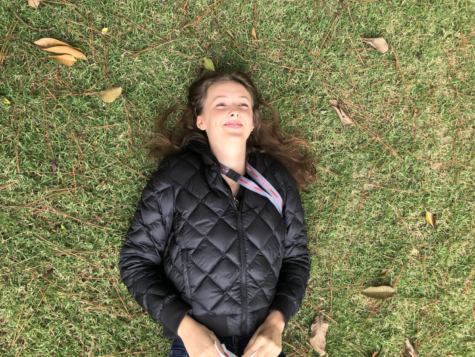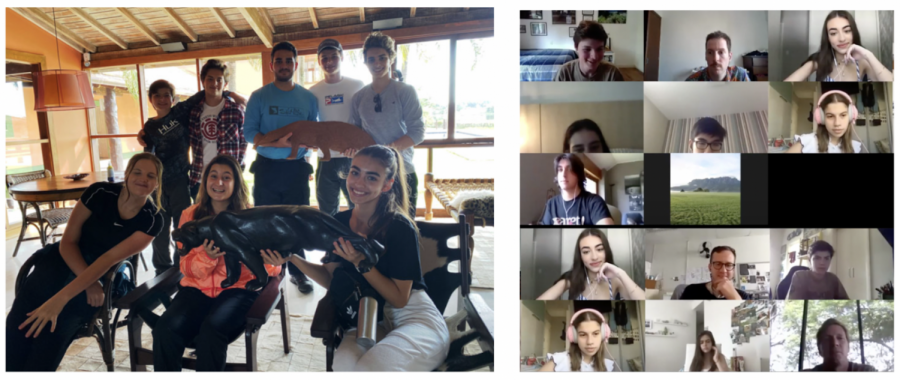Clubs at Graded during COVID-19
Clubs and activities are an integral part of the Graded community that provides enriching experiences outside the academic curriculum. The variety of opportunities students are given range from community service, to creativity in the arts, academic competitions, public speaking, and team sports. What these experiences have in common is that they allow students to pursue an area of personal interest in a collaborative setting.
According to the activities handbook, Graded hopes that through these extracurricular opportunities, students build intercultural competence and build relationships within the school community outside of the academic setting. In the past, the school has been extremely successful in achieving its aims. However, these experiences were not immune to the hurdles and changes imposed by the global pandemic and mandated quarantine.
As distance learning quickly became the new normal and returning to school in full capacity transitioned to something of the distant past, these clubs, which relied mostly on physical interactions, were forced to adapt. The sudden lockdown led club leaders and members to change their structure and sometimes even their function while maintaining its essence for an indefinite period of time. In this article, The Talon set out to explore three different clubs and the ways in which they changed.
Model United Nations, or MUN, has been a part of Graded for many years. It provides students with a simulation of the United Nations through local and Global debate conferences. Participants assume the roles of representatives of member states (or official observers) and debate several different topics regarding the UN’s vast agenda. Club members gain a greater understanding of global issues and the complexities of the international system, learning meaningful debate and communication skills, and develop habits of mind which serve them well not only in their academic lives but also in their lives beyond school.
Another Graded club is FALA (Friendship and Language Acquisition), which started over twenty years ago. It aims to provide a sense of community through weekly English lessons taught by Graded students to those in neighboring areas. Graded students undergo a training program to learn how to teach English, evaluate student strengths and weaknesses, and be successful in the classroom. On Saturdays, these students teach English to over 200 economically disadvantaged people. Apart from classes, FALA also promotes friendship between members, and life-changing relationships often happen between Graded teaching students and their students.
Lastly, Casa Maria Helena (CMH) is a club that supports a non-governmental organization that shelters children with cancer – and other diseases – and their carers. They come from different Brazilian states to Sao Paulo looking for infrastructure for the treatment that fits their needs. Casa Maria Helena offers shelter, food, psychological support, hygiene products, and activities while the patient gets treatment.
These three clubs have been deeply impacted by the pandemic, leading them to change their structure while keeping all the characteristics that are crucial to the Graded tradition.
MUN, with the lock-down, club meetings and conferences were initially halted. However, since June, members have returned to debating, taking part in online conferences. One of the club’s leaders, Sofia Amato, explained how quarantine has actually been beneficial for the club. Undoubtedly, the experience of debating in person is different than through computer screens on Zoom. However, she made it clear that because of lockdown, members can now take part in more conferences than ever before “thanks to the commitment from students and schools who are willing and able to host.” This has helped increase recruitment and improve confidence and skill in new members more quickly. In addition, to make it easier for new members, the experienced delegates have started a Mentoring Program Although the weekly meetings are now held on Zoom makes delegates more distant, it also brought benefits. According to Sofia, “breakout rooms have been very useful” because everybody is working on their own skills’ and then coming together. For now, it seems like the virtual conferences will possibly continue indefinitely. In the case of MUN, the benefits of transitioning to distant mode have surprisingly outweighed the downfalls.
Next, FALA has been according to a FALA teacher, Santiago Giraldez, at first the club members struggled to deal with the situation and “had to adapt very quickly,” given that they were almost halfway through the semester and had to find a way to maintain the effectiveness of the classes via Zoom. At the beginning of the transition students had “trouble joining due to technical problems,” and still today, most aren’t very comfortable turning on their cameras during the class, which has greatly impacted the element of friendship in this club. However, the teachers and advisors realized this issue and continuously changed the model of the class, finding ways of making it more engaging while covering all the necessary content. Santiago reflected how the pandemic has led them to “find problems that were within the FALA structure” and that when face-to-face lessons come back they “will be even better than pre-pandemic.”
Before the pandemic, Graded supported it through weekly visits and fundraising events. However, since March, the visits had to be interrupted. For this reason, the club adapted to focus on emotional support through online platforms and fundraising. The club is currently divided into two groups in order to focus their objectives: emotional support and fundraising. The latter involves a virtual bazaar to raise money by selling donated quality clothes for very low prices via social media, where all the money will go directly towards helping the shelter – including food, infrastructure, staff, hygiene products, among other needs of the patients. Isabella Tonnani, one of the club leaders, stated that the patients are deeply in need of emotional support, as before the pandemic, there were weekly visits to the shelter by members of the club. Isabella highlights that the emotional support group has focused on communicating with patients online and discussing the possibility of conducting Zoom calls with patients. Furthermore, they are also promoting celebrations of important dates and events in the shelter but from a distance. For instance, during Dia das Criancas, they collected gifts and wrote personalized cards for each of the patients. Isabella stated that “although [they] couldn’t go there, [they] still left something for the patients.”
These clubs are just some examples of how perseverance and commitment helped, and continues to help them maintain the purpose of the activity. The leaders and members have created innovative ideas to keep people engaged and motivated, and to keep this Graded Community tradition alive.

Eva is in her senior year at Graded and is extremely excited to be part of The Talon team for the second time! She is going to be a writer and editor in...











